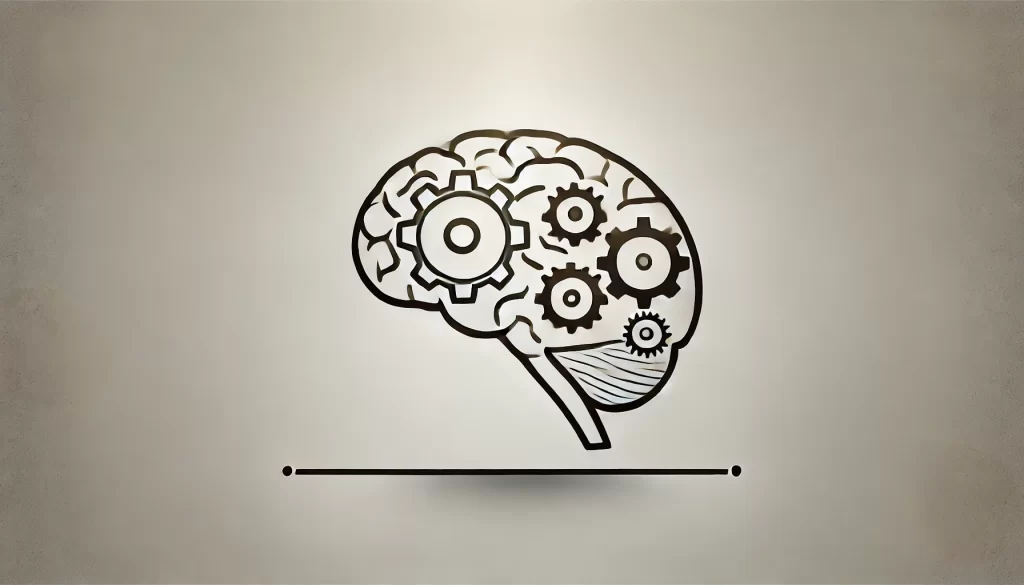Jump to the section
- Personal Development through Habits
- How do you Build Habits?
- Daily Habits That Drive to Success
- Success Stories of Small Habits for Big Results
- Secrets for Successful Habit Formation
- Tools for Habits Formation and Personal Growth
- Growth Mindset and Daily Habits
- Building Positive Habits is a Life-Changing Experience
- FAQs
If success is a flower, daily habits are the water and sunlight to make it bloom. We often think big actions help us succeed. In reality, personal growth lies in the small and repetitive daily actions. Whether you set to-do lists or goals for each day, your daily practices and habits are setting the way to grow and succeed.
Building certain daily habits is critical in bringing about steady personal growth. By adding these habits into your daily routine, you not only increase your chances of success, but you also improve your continuous self-development.
“ If you improve 1% every day – in just 70 days you are twice as good”
Alan Weiss
In this article, you will learn what is a habit and which habits could lead to your growth. We give tips and examples on self-improvement habits and how you can lead your motivation. Are you ready to learn and integrate personal growth into your daily routine?
Personal Development through Habits
Personal growth habits are those specific daily repetitive actions and behaviors that are intentional and support the achievement of success in the long run. These are the building blocks of one’s self-growth journey in building resilience, continuous learning, and well-being improvement.

“ The biggest room in the world is the room for improvement”
Helmut Schmidt
One important aspect regarding personal development habits is enhancing your self-awareness. Habits like regular reflection, mindfulness practices, and journaling enable you to understand your strengths and weaknesses. You can also understand better what triggers emotions within yourself. Mindfulness and meditation keep you present, promoting your deeper self-understanding. This heightened level of self-awareness also provides direction for better decision-making and developing your emotional intelligence.
The second critical factor in personal development is resilience. Exercising gratitude and regular physical activity create a positive mindset and sustain motivation. Physical activity improves not only the state of your body but also your mental condition. This is because with exercise comes the release of endorphins, which improve your mood and reduce stress.
If you would like to grow, continuing learning is a must. Lifetime learning can be day-to-day reading, attendance at workshops, or through online courses. This will keep you updated with what is happening in the industry you are in. Moreover, this will help you develop yourself and be ready for higher career opportunities. By adopting positive personal growth habits, such as goal setting, effective communication, and relationship building, you can achieve significant improvements in all aspects of your life. Integrating these habits into your everyday life leads to self-improvement and finally long-term success.
How do you Build Habits?
Habits are formed based on what is called the habit loop of three key elements: “cue”, “reward” and “routine”. Initially, a certain action or behavior is triggered by a cue. After performing this action or§ behavior, a reward is received. After some repetition, this reward is associated with a certain action or behavior. With some time, the “cue-reward” loop becomes more and more automated. This means there is a need for less conscious mental effort to initiate and maintain these specific actions or behaviors. Then comes the third element, the “routine”. After some repetitions of the “routine”, the habit is set. Research has shown that close to 40% of our actions are habitual, therefore building positive habits is crucial to success.
The neurological basis of habits lies in the basal ganglia of the brain, which is responsible for procedural learning and motor control. As behaviors are repeated, so grow the neural pathways, and the actions become increasingly automatic through that development. The brain’s reward system releases dopamine. This consolidates further these habits due to the pleasurable response of dopamine. This is why consciously building positive habits is crucial for aligning both personal and professional goals with happiness.
Developing habits like regular exercise, effective time management, and mindfulness, could dramatically improve your productivity, well-being, and resilience. Studies have shown that small positive habits are important and the driving force towards long-term growth and success in life.
Daily Habits That Drive to Success
It is the power of daily habits that brings success and provides structure, and momentum for personal and professional growth. The intended building of good habits can align daily actions with long-term goals. This can provide tremendous satisfaction and effectiveness in the long run.

Daily habits also can develop consistency, discipline, and focus. For example, a daily morning routine, involving meditation, exercises, and goal-setting improves your day’s productivity. Not only does such a practice prepare you for daily challenges, but also cultivates a proactive attitude. These are key elements for being successful.
The second most significant daily habit is effective time management. Techniques such as “Pomodoro” or “Time-blocking” help to focus and prioritize important tasks to meet important goals. This can prevent you from burnout while increasing productivity and resilience for sustained success.
Continuous learning remains an important factor in making you adaptable and competitive. Daily reading, studying, or following your industry trends, can provide long-term personal and professional development.
It is important to build in your life these daily habits for self-improvement. It builds the basis for future success. Focus on small and repetitive actions can provide momentum toward the long-term achievement of bigger goals.
Success Stories of Small Habits for Big Results
The positive daily habits are “too small to fail”, easy to start, and easy to maintain. Therefore daily habits rarely lead to burnout or stressful situations. Let’s see some successful cases of small habits.
- Stephen Guise, in his book “Mini Habits: Small Habits, Bigger Results”, wrote about how he began only doing one push-up per day, and that resulted in the habit of exercising. This demonstrates how you can start a small habit that can result in improved physical fitness.
- James Clear’s Atomic Habits insists on the power of small changes. He shares stories of people who somehow managed to change their lives just by sticking to small habits, like two minutes of exercise per day or just writing a few sentences in a journal. These small habits resulted in big life changes and personal improvements.
- Domino Effect is the idea that one little positive thing can spread and begin an avalanche of huge, positive changes. For example, a daily habit of stretching enhances flexibility, which improves sleep and creates excitement for many other activities.
Small habits can result in life-changing and transformative practices. You need small and incremental changes. By showing consistency you can start a routine that can be transformed into a habit for personal growth.
Secrets for Successful Habit Formation
Motivation is a key element in habit development. It is the driving force for achieving and maintaining habits. Motivation comes naturally if you align positive habits with your personal and professional goals. Understanding the psychological factors affecting motivation for habit formation can help you cultivate and sustain them effectively.
So what are some practical tips for improving motivation?
- Set Clear Rewards: Establish specific reward practices immediately after the habit actions. For example, if your goal is to exercise regularly, eat your favorite snack after each workout. This reward creates a positive association and acts as a motivational factor.
- Prioritize Intrinsic Motivation: Align your habits with personal values and interests. You can focus more on the mood-enhancing and energy-increasing levels of exercising regularly, rather than the physical gains.
- Baby Steps: Start small to get easy and manageable steps to begin without getting exhausted. Research confirms that smaller habits are far more sustainable over the long term and can eventually become much bigger routines.
Motivation can help you start a new routine that can lead to a habit. But what happens after a while? Motivation is phasing out and you are not feeling the same enthusiasm as at the beginning. The main secret to turning a routine into a long-term habit is consistency.
Consistency is the secret that reinforces the habit when motivation is reduced. When we perform the routine consistently, it strengthens certain neural pathways in the brain. By building such neural pathways, you are making the action more automatic. This requires less mental effort and makes the routing easier to handle in the subconscious. This process is important for sustaining habits, as it embeds positive behavior into daily routines without expending valuable mental energy.
If you perform the same routine at the same time of the day, you build a solid basis for habit formation. Consistent practice of actions can embed habits into your daily schedule and routine. This creates sustainable triggers (cues) and motivators (awards) that create a reliable routine easier to sustain. This regular engagement on the routine, as it is embedded in your schedule, makes the habit easier to maintain even when motivation is low.
What are the best Tools to Maintain Habit Consistency?
- With Habit Trackers, you can monitor progress. You can set goals and track the performance of your routines. This provides continuous motivation to achieve the goals. You can also share your achievements on social media, which makes it an additional motivational factor.
- Having an accountability partner can increase your commitment to follow a certain routine. You can share your goals and even compete with your partner. Regular meetings and check-ins provide a sense of support and encouragement that make it easier to stay on course.
Tools for Habits Formation and Personal Growth
Tracking your habit progress can be an effective way to establish and maintain a routine in your daily schedule. A habit tracker can provide insights into daily behaviors and rewards. Such rewards can come as achieving certain goals or by sharing your achievement to others.
A tracker can also provide notifications and reminders for people who need more support to establish a routine. Moreover, you can see the insights, such as graphs and statistics, and help you correct some behaviors and make the right changes towards developing specific skills. It reinforces your self-awareness in knowing which practices lead to personal growth. You can identify patterns and make improvements to your schedule. This encourages the cue-routine-reward habit loop even further.
Habit Tracking Applications
Implement the use of applications like Habitify or Streaks for efficiently tracking your habits. Reminder, progress charts and statistics can help you improve your motivation and accountability.
Journaling
Write down and record the daily activities in your habit journal. You can state your progress and the challenges you are facing. By recording actions and behaviors, you become more self-aware of your actions and routines.
Growth Mindset and Daily Habits
A growth mindset is the belief that skills and intelligence can be developed through continuous effort, learning, and persistence. Please with a growth mindset view the challenges as opportunities. They embrace continuous learning in every aspect of their lives. This provides resilience and the motivation to overcome obstacles. This is important to habit-building, as it provides intrinsic motivation.

A growth mindset is the basis of continuous self-improvement activities. Those with such a mindset are more likely to take risks, look for opportunities to learn, and persist in case of setbacks. People with a growth mindset are looking to establish routines and habits for self-improvement.
How can you develop a growth mindset by forming habits?
You can develop a growth mindset and establish habits by undertaking challenging tasks.
- The more you are out of your comfort zone, the better the opportunity to grow. By “stretching” yourself you are developing new skill sets.
- You need to think of setbacks and challenges as opportunities for learning and developing your resilience.
- Take feedback as a gift. Seek constructive feedback and take it as an improvement idea and not as a criticism.
- Reflect on your progress by weighing your achievements against challenges. In that way, you stay motivated and readjust the course whenever necessary.
- Continuous learning is a must if you would like to develop new skills and improve your knowledge in any area. You have to dedicate yourself to lifelong learning.
Building Positive Habits is a Life-Changing Experience
Success and personal growth are mainly rooted in consistent actions, routines, and positive habits. Change is not coming overnight, and you must consider it a process rather than an event. In that way, it is important that by building new habits you need to integrate practices such as continuous learning, skill development, and mindfulness into your routines.
“We become what we repeatedly do. Excellence, then, is not an act but a habit.”
Aristotle
What makes habits so powerful is the automation of positive behavior. The key trigger is the commitment towards your goals both personally and professionally. You need to feel accountable to yourself and others and to embrace a growth mindset. This will lead you towards achievement and personal fulfillment.
Your success is in your hands and your will to cultivate new positive habits. Start with small and consistent steps by building the “Cue – Routine – Reward” habit loop. A small step is enough to start building the brain path to your development. Your future success depends on your choices and the routines you are building now.
FAQs
Some of the very effective daily habits for personal growth are continuous learning, exercise, and mindful reflection. Continuous learning is keeping your brain active and flexible, while exercise makes you both physically and mentally fit. Mindful reflection improves your self-awareness.
A growth mindset helps build habits because it enables you to view challenges as opportunities for improvement. The growth mindset sets you to find ways for personal development. This engages you to build self-improvement routines and long-lasting behaviors.
Consistency is important for building long-lasting habits. The repetition of the actions and behaviors strengthens the formation of automatic responses and is less reliant on conscious effort. This is important when motivation is reduced, you can keep momentum with consistency.
Habits tracking improves personal development by providing insights, visual graphics, and statistics. It helps you recognize patterns and notifications for deviations or adjustments. Habit trackers and journaling help you to keep track of your development routines.
Goals setting, the practice of gratitude, and exercise help you achieve major results in both your personal and professional life. These small and manageable actions can be the foundation for success. Results are compounding as small habits bring incremental daily improvements. By starting “small steps” you can build momentum to your development.
